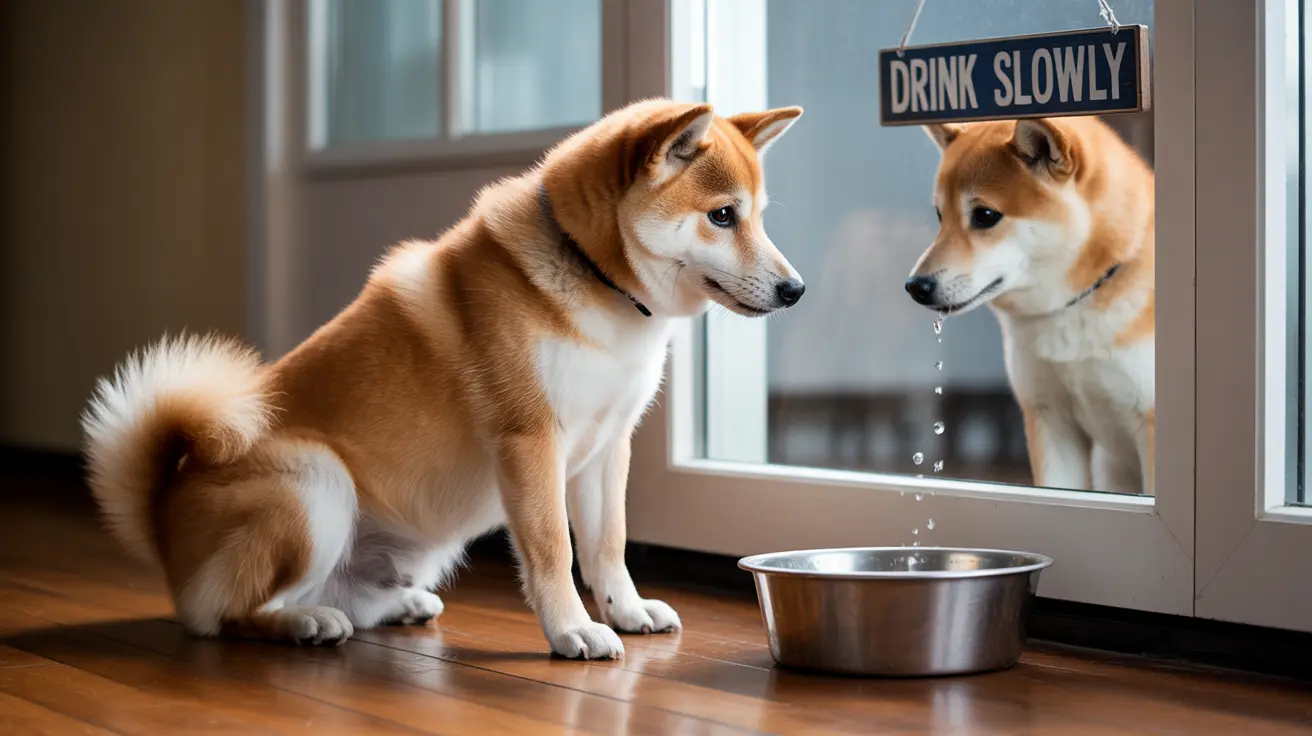If you've ever witnessed your dog vomiting after drinking water, you're not alone. This common issue can be concerning for pet owners, but understanding its causes and solutions is crucial for maintaining your dog's health. From simple behavioral factors to more serious medical conditions, let's explore why dogs throw up after drinking water and what you can do about it.
Common Causes of Water-Related Vomiting in Dogs
Drinking Too Fast
The most frequent reason dogs throw up after drinking water is simply drinking too quickly. When dogs consume water rapidly, especially after exercise or during hot weather, they often swallow air along with the water. This can trigger their gag reflex or cause the stomach to expand too quickly, resulting in immediate regurgitation.
Water Bowl Issues and Drinking Habits
Sometimes, the problem lies with how dogs access their water. Deep, narrow bowls can encourage faster drinking, while elevated bowls might not be suitable for all dogs. Additionally, some dogs may develop problematic drinking habits, such as gulping water competitively when other pets are present.
Medical Conditions That Can Cause Water-Related Vomiting
Gastrointestinal Problems
Various digestive issues can cause vomiting after drinking water. These include gastritis, inflammatory bowel disease, or foreign objects in the digestive tract. If your dog consistently vomits after drinking, regardless of how slowly they consume water, this could indicate an underlying gastrointestinal condition.
Serious Health Concerns
More severe conditions that might cause water-related vomiting include:
- Laryngeal paralysis
- Megaesophagus
- Kidney disease
- Liver problems
These conditions require immediate veterinary attention, especially if accompanied by other symptoms like lethargy, loss of appetite, or changes in behavior.
Prevention and Solutions
Modifying Drinking Habits
To help prevent vomiting after drinking water:
- Use specialized slow-feeder water bowls
- Add ice cubes to the water
- Provide smaller amounts of water more frequently
- Monitor water temperature (room temperature is usually best)
Environmental Adjustments
Consider these environmental changes:
- Place multiple water stations around your home to prevent desperate drinking
- Keep water bowls clean and fresh
- Ensure the water bowl is appropriately sized for your dog
- Consider using a pet water fountain for controlled flow
When to Seek Veterinary Care
While occasional vomiting might not be serious, certain situations warrant immediate veterinary attention:
- Vomiting persists for more than 24 hours
- Blood appears in vomit
- Your dog shows signs of dehydration
- Lethargy or other behavioral changes occur
- Loss of appetite accompanies vomiting
Frequently Asked Questions
Why does my dog throw up after drinking water too quickly?
Dogs who drink water too quickly often swallow air along with the water, causing the stomach to expand rapidly. This can trigger the gag reflex or cause immediate regurgitation of the water.
Can contaminated water cause my dog to vomit after drinking?
Yes, contaminated water containing bacteria, parasites, or other harmful substances can cause vomiting. Always ensure your dog has access to clean, fresh water and avoid letting them drink from potentially contaminated sources.
What underlying health issues might cause my dog to vomit after drinking water?
Several health conditions can cause water-related vomiting, including laryngeal paralysis, megaesophagus, gastrointestinal disorders, kidney disease, and liver problems. Persistent vomiting should be evaluated by a veterinarian.
How can I prevent my dog from vomiting after drinking water?
Use slow-feeder water bowls, add ice cubes to water, provide smaller amounts more frequently, and ensure proper bowl placement. These methods can help regulate your dog's water consumption and prevent vomiting.
When should I take my dog to the vet if they vomit after drinking water?
Seek veterinary care if vomiting persists for more than 24 hours, contains blood, is accompanied by lethargy or loss of appetite, or if your dog shows signs of dehydration. Immediate attention is necessary if multiple symptoms occur simultaneously.






